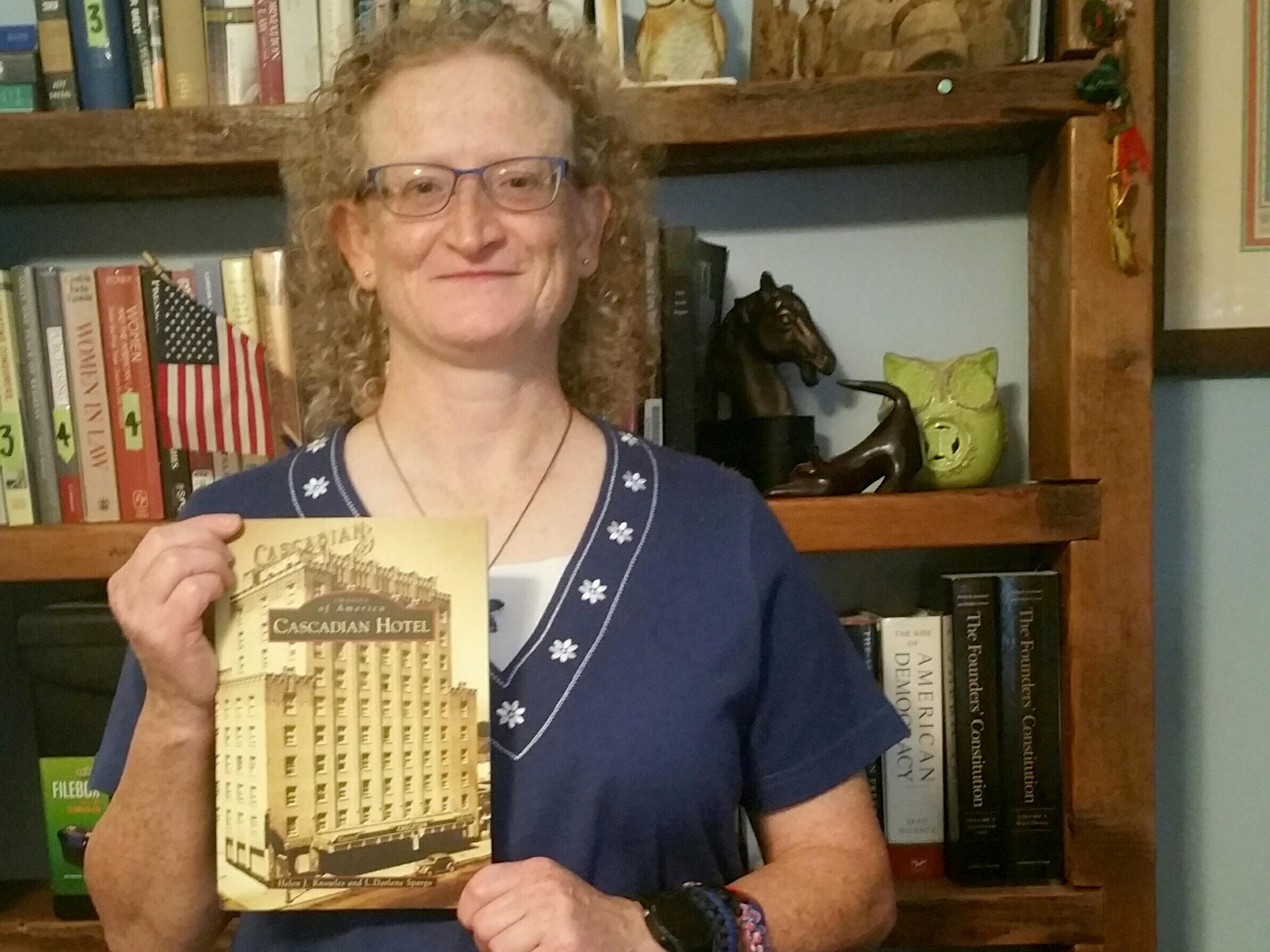Productive research -- Political science faculty member Helen Knowles published two books over the summer -- “Cascadian Hotel” (which she is holding) and “Free Speech Theory: Understanding the Controversies” -- with a third new book due out this fall.
SUNY Oswego political science faculty member Helen Knowles’ two new books span the timely and timeless: one addresses hot topics like removing Confederate statues, the other a historic treasure of a building in the Pacific Northwest.
“Free Speech Theory: Understanding the Controversies” came out in June, while “Cascadian Hotel” did so in August.
The “Free Speech Theory” textbook was co-edited by Knowles and Brandon Metroka, a former adjunct professor at Oswego while earning his doctorate from Syracuse University, and who now teaches at the University of the Incarnate Word in San Antonio.
Knowles said she noticed people across the political spectrum talk about free speech and offensive speech in terms of things that offend them, so this book is meant to get to the foundational issues and expectations.
“We knew the issues would be contemporary,” Knowles said. “Little did we know that this would be published at a time when free speech issues, such as the tearing down of Confederate monuments, would be front and center in the news.”
Jason Zenor of Oswego’s communication studies department contributed a chapter on intellectual property. Other chapters examine free speech in the context of “fake news,” academic freedom, how speech is handled in the United Kingdom and Australia, and how athletes like Colin Kaepernik integrated it into sports.
While mainly geared toward the teaching and learning market from the Peter Lang publishing house, the book nonetheless contains both timeless and very contemporary themes. With a pivotal upcoming election, understanding free speech is as vital as ever.
“It’s trying to get people to think about freedom of speech and freedom of expression, and how to take the ideas of others,” Knowles said. “The book is for classroom audiences to explain the issues behind free speech, but it can help anybody.”
Historic hotel
“Cascadian Hotel,” part of Arcadia Books’ “Images of America” series, looks at a hotel that was part of a landmark Supreme Court case -- but also was a key part of its community of Wenatchee, Washington, for decades.
A Wenatchee historian, L. Darlene Spago, co-authored the book and provided valuable local knowledge and research skills to augment Knowles’ trips to learn more about the building, its business and the community history.
The pictoral book came about as Knowles researched yet another forthcoming book, this on the West Coast Hotel Co. vs. Elsie Parrish case, in which the Supreme Court upheld a Washington state minimum wage law in 1937. Knowles found the history of the hotel and its legacy contained enough material for its own book.
“Elsie Parrish was a brave pioneer in a sense, and the building and company history are just as remarkable,” Knowles said. The flagship hotel played a key role in the foundation of what is now known as the Westin hotel chain, and many of its managers became known as top figures in the hospitality industry.
“It’s a coffee-table style book with 165 historical photographs, starting with its construction in 1929,” Knowles noted. “All of my books are a labor of love, but this one especially is.”




